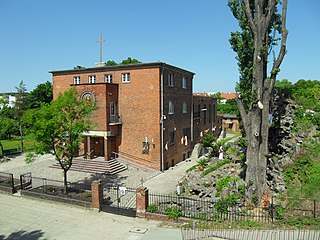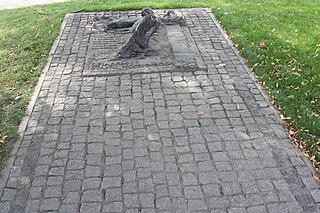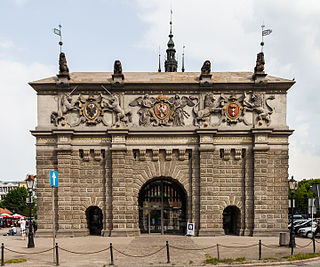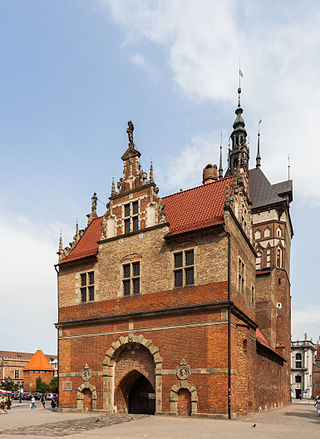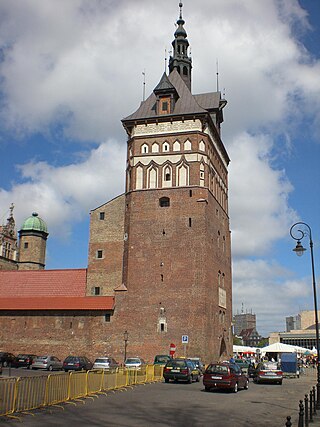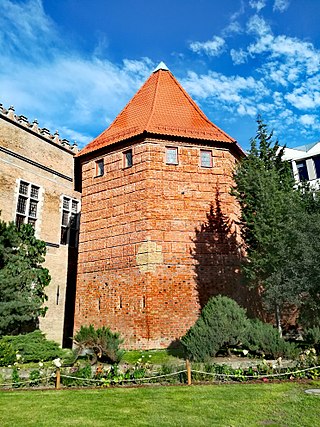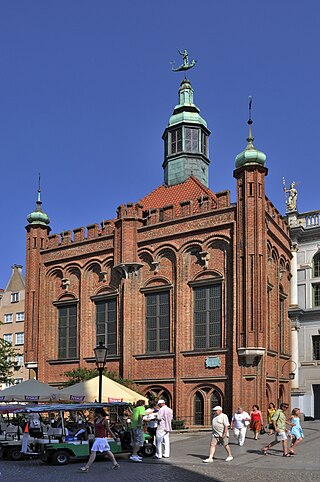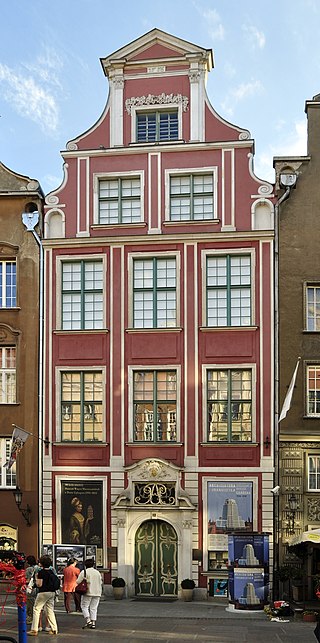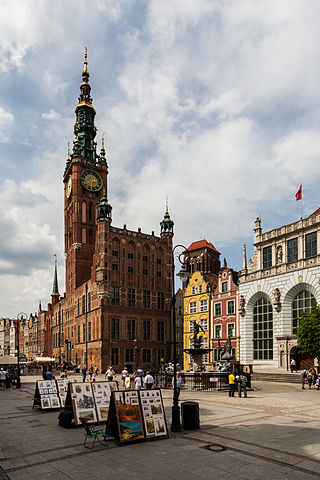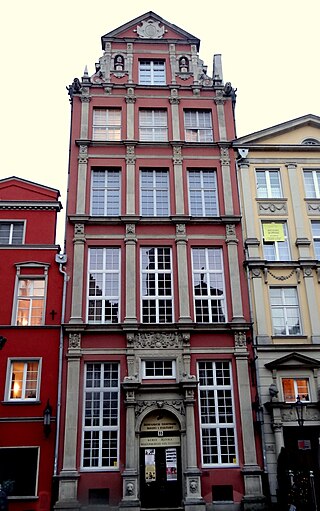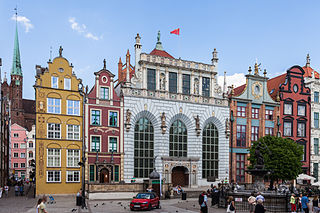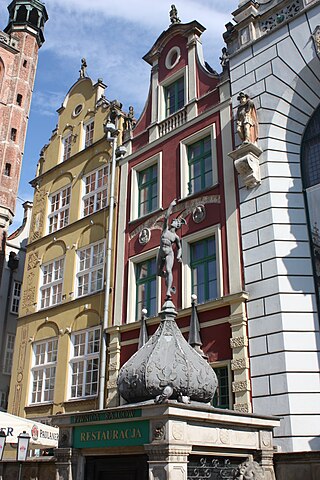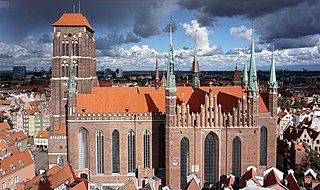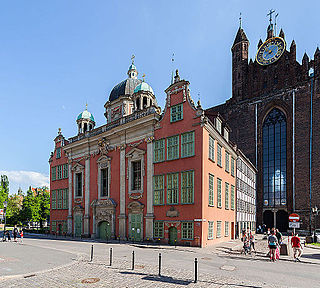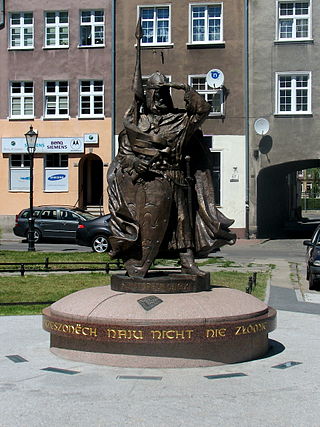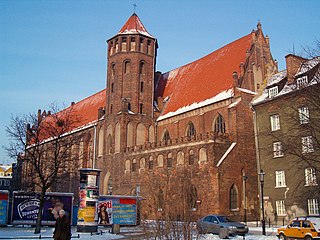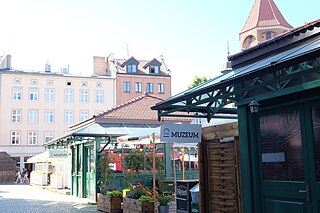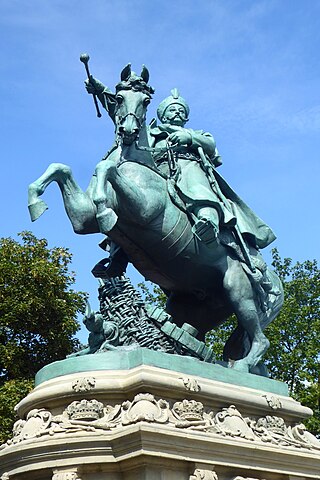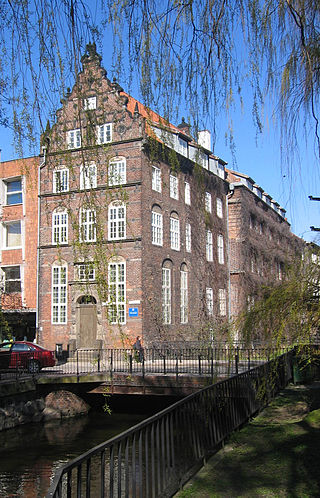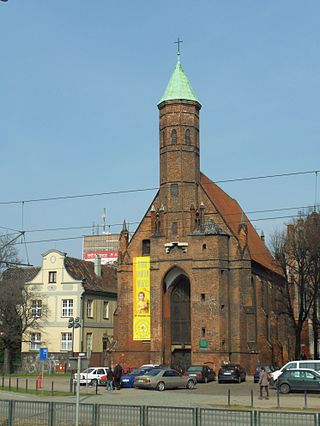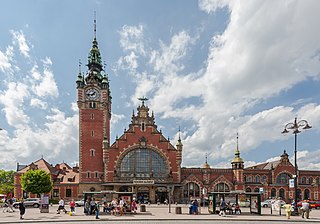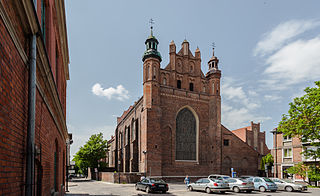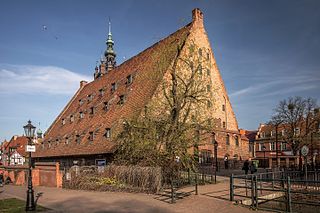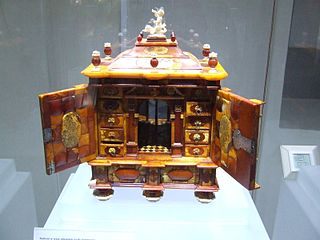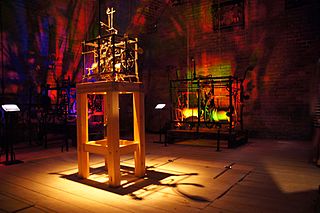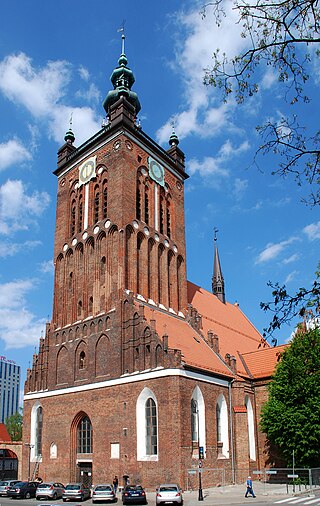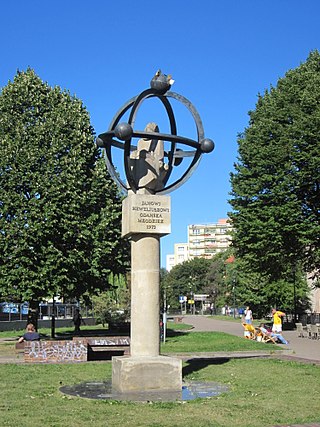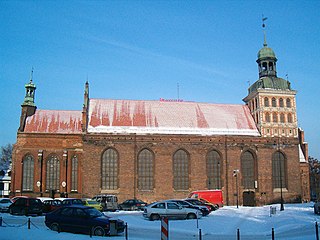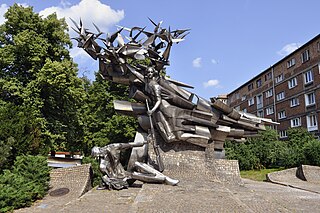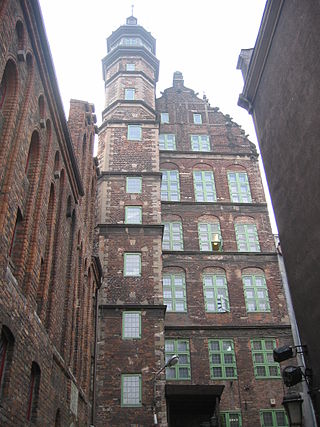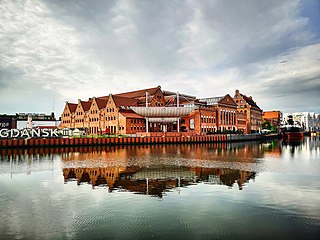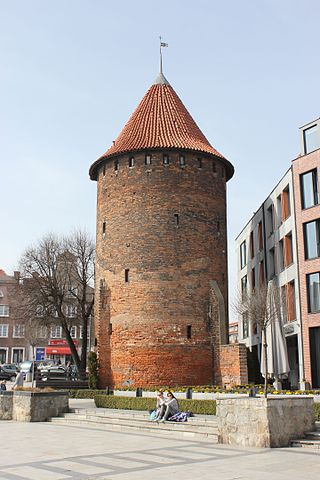Self-guided Sightseeing Tour #3 in Gdansk, Poland
Legend
Guided Free Walking Tours
Book free guided walking tours in Gdansk.
Guided Sightseeing Tours
Book guided sightseeing tours and activities in Gdansk.
Tour Facts
6.9 km
84 m
Experience Gdansk in Poland in a whole new way with our free self-guided sightseeing tour. This site not only offers you practical information and insider tips, but also a rich variety of activities and sights you shouldn't miss. Whether you love art and culture, want to explore historical sites or simply want to experience the vibrant atmosphere of a lively city - you'll find everything you need for your personal adventure here.
Activities in GdanskIndividual Sights in GdanskSight 1: Kościół pw. Chrystusa Króla
The Roman Catholic parish church of Christ the King is a church located at 55 Rogaczewskiego Street in Gdańsk Siedlce.
Sight 2: Pomnik Ofiarom Stanu Wojennego
The Monument to the Victims of Martial Law – a monument in Gdańsk at the Cancer Market in the form of a lying figure, in memory of Antoni Browarczyk, the first fatal victim of martial law in Poland. The author of the monument is the Gdańsk sculptor Gennadij Yershov, the initiator of the monument is the president of the Association of the Federation of Fighting Youth, photojournalist Robert Kwiatek.
Sight 3: Brama Wyżynna
The Upland Gate, formerly also the "High Gate" – a Renaissance city gate in Gdańsk, currently on the main car route. Until 1895, it was located in the line of sixteenth-century fortifications, between the Bastion of St. Elizabeth and the Karowy Bastion, and was the main entrance gate to the city, opening the so-called Royal Route.
Sight 4: Katownia
Torture Chamber – built in the second half of the fourteenth century, as a medieval fortification of the Main Town in Gdańsk. Together with the Prison Tower, it formed the foregate (barbican) of Długa Street.
Sight 5: Wieża Więzienna
Prison Tower – was built as part of the medieval fortifications of the Main Town in Gdańsk. Together with the Torture Chamber and the so-called Neck connecting them, it forms the foregate (barbican) complex of Długa Street.
Sight 6: Baszta Słomiana
The Straw Tower – a historic, octagonal fortified tower in the Main Town of Gdańsk.
Sight 7: Dwór Bractwa św. Jerzego
The Court of the Brotherhood of St. George – a building in Gdańsk at Targ Węglowy 27, built in the years 1487–1494 by Jan Glothau as the seat of the confraternity of the patriciate of the Main City of Gdańsk.
Sight 8: Golden gate
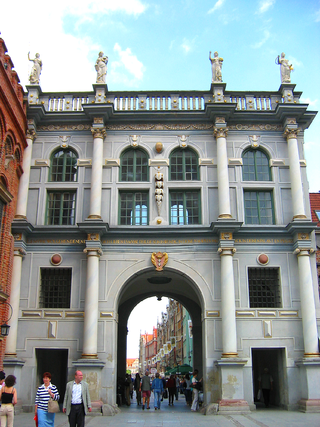
The Golden Gate is a historic Renaissance city gate in Gdańsk, Poland. It is located within the Royal Route, the most prominent part of the historic city center and is one of its most notable tourist attractions.
Sight 9: Dom Uphagena
The Uphagen House is a reconstructed 18th-century merchant house in Gdańsk, Poland, located at the Ulica Długa within the Royal Route in the historic Main City. It houses a museum, which is a branch of the local historical museum.
Sight 10: Ratusz Głównego Miasta
Gdańsk Main Town Hall is a historic Ratusz located in the Gdańsk Main City borough of Śródmieście. It is one of the finest examples of the Gothic-Renaissance historic buildings in the city, built at the intersection of Ulica Długa and Długi Targ, in the most popular part of Gdańsk. The Main Town Hall in Gdańsk houses the History Museum of the City of Gdańsk.
Sight 11: Lwi Zamek
The Lion's Castle is a tenement house in Gdańsk, at 35 Długa Street.
Sight 12: Artus Court
Get Ticket*The Artus Court is a building in the centre of Gdańsk, Poland at Długi Targ 44, which used to be the meeting place of merchants and a centre of social life. Today it is a point of interest of numerous visitors and a branch of the Gdańsk History Museum.
Sight 13: Stary Dom Ławy
The Old House of the Jury – a historic tenement house in Gdańsk. It is located at Długi Targ.
Sight 14: Złota Kamienica
The Steffens House – a historic tenement house located on the Royal Route in Gdańsk in the Main Town. It is sometimes called Speymann's house or the Golden Tenement House.
Sight 15: St Mary’s Church
St. Mary's Church, or formally the Basilica of the Assumption of the Blessed Virgin Mary, is a Brick Gothic Catholic church located in central Gdańsk, Poland. With its volume between 185,000 m3 and 190,000 m3 it is currently one of the two or three largest brick churches in the world. Only San Petronio Basilica in Bologna, comprising 258,000 m3 is larger, Munich Frauenkirche and Ulm Minster also comprise 185,000 to 190,000 m3.
Wikipedia: St. Mary's Church, Gdańsk (EN), Website, Heritage Website
Sight 16: Kaplica Królewska
The Royal Chapel is a Baroque Catholic chapel in the Main Town of Gdańsk.
Wikipedia: Kaplica Królewska w Gdańsku (PL), Heritage Website
Sight 17: Pomnik Świętopełka Wielkiego
The Swantopolk II the Great Monument is a bronze statue in Gdańsk, Poland, located in the Main City neighbourhood, within the Downtown. It is placed the Swantopolk II the Great Square, between Grobla II, Świętojańska, Szeroka, and Złotników Streets. The monument is dedicated to duke Swantopolk II, ruler of the Duchy of Gdańsk from 1227 and 1266. It was designed by Wawrzyniec Samp and unveiled on 22 August 2010.
Sight 18: Bazylika Świętego Mikołaja
Basilica of St. Nicholas – a brick, Gothic monastery church of the Dominicans from the 14th-15th centuries.
Wikipedia: Bazylika św. Mikołaja w Gdańsku (PL), Website, Heritage Website
Sight 19: The Romanesque Cellar
Refectory of the Dominican monastery in Gdańsk - a Romanesque refectory (dining room), which was once part of the Dominican monastery, discovered in 2005. It is the oldest preserved cubature interior in Gdańsk, with an area of 52 m². It is located in the main city, under the Dominican Square, between the church of St. Mikołaj and Hala Targowa. It was created in the middle or in the third quarter of the 13th century. Most of the room survived in good condition, despite the fact that the building was rebuilt several times. The facility was located on a very low ground floor, about 1 meter caught in the ground. The refectory has a unique design of the vault with four fields of elliptical vaults supported on pendentives and the central pillar. He was hidden entirely underground. Initially, it was planned to fill the facility again, but due to the opposition of conservation environments and lovers of monuments, as well as the intervention of the Ministry of Culture, the refectory went under the management of the Archaeological Museum, which at the cost of PLN 5 million made its renovation.
Wikipedia: Refektarz klasztoru dominikanów w Gdańsku (PL), Website
Sight 20: Jan III Sobieski
The King John III Sobieski Monument in Gdańsk is an equestrian statue of the King of Poland John III Sobieski (1629-1696). Originally built in Lviv in 1898, the monument was transferred to Gdańsk in 1965.
Sight 21: Dom Opatów Pelplińskich
The House of the Pelplin Abbots – a tenement house in Gdańsk, one of the few preserved monuments of the Old Town. It is the seat of the Institute of Art History of the University of Gdańsk.
Sight 22: St Elizabeth Church
St. Elizabeth's Church in Gdańsk – a historic rector's church, located within the boundaries of the parish of St. Bridget in the Archdiocese of Gdańsk. In the years 1622–1820, it was the second temple of the Gdańsk Calvinists.
Sight 23: Gdansk main train station
Gdańsk Główny is the chief railway station serving the city of Gdańsk, in the Pomeranian Voivodeship, Poland. The station opened in 1900 and is located on the Warsaw–Gdańsk railway, Gdańsk–Stargard railway, the parallel Gdańsk Śródmieście–Rumia railway, Gdańsk Główny–Gdańsk Zaspa Towarowa railway and Gdańsk Główny–Gdańsk Nowy Port railway. The train services are operated by PKP, Polregio and SKM Tricity. Koleje Mazowieckie trains operate here during the summer.
Wikipedia: Gdańsk Główny railway station (EN), Heritage Website
Sight 24: Kościół pw. Świętego Józefa
St. Joseph's Church in Gdańsk – the rector's church belonging to the parish of St. Bridget in the Archdiocese of Gdańsk. Adjacent to the church is a chapel where adoration of the Blessed Sacrament takes place throughout the day, during which you can also use the sacrament of reconciliation. During the Reformation, it was one of the few Roman Catholic churches operating in Gdańsk. In the time of the Carmelites, the church was dedicated to Our Lady of the Snows and the Holy Founders Elijah and Elisha.
Sight 25: Wielki Młyn
The Great Mill – a medieval historic water mill in the Old Town of Gdańsk, on the island of Tarcza. It was powered by the waters of the Radunia Canal. Currently, it houses the Amber Museum.
Sight 26: Amber Museum
The Amber Museum in Gdańsk – a museum of crafts in Gdańsk, founded in 2000, a branch of the Museum of Gdańsk; documents the history of amber and amber in Poland.
Sight 27: Baszta Jacek
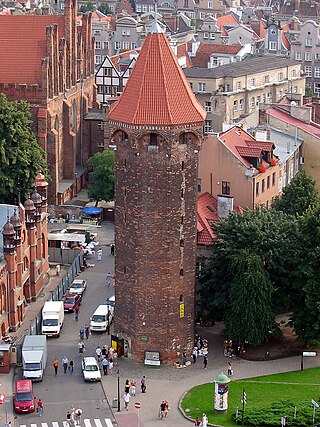
Jacek Tower – a historic tower in the line of medieval fortifications of the Main Town in Gdańsk, built around 1400. The highest of the medieval Gdańsk towers. It is located at Pańska Street, near Podwale Staromiejskie and the Wood Market. The neighboring tower is the Tower on the Wall.
Sight 28: Pracownia Zegarów Wieżowych
The Museum of Tower Clocks, currently the Museum of Gdańsk Science, is a museum in the Old Town of Gdańsk, a branch of the Museum of Gdańsk.
Sight 29: St. Catherine’s Church
St Catherine's Church is the oldest church in Gdańsk, Poland. Though building began in the 1220s, it experienced many renovations and additions to reach its full size. The Gothic-style design includes chappels, a high gable roof, a square floor plan, vaults, and more.
Sight 30: Pomnik Jana Heweliusza
Monuments to Johannes Hevelius – two monuments to the eminent Polish astronomer Johannes Hevelius in the Old Town of Gdańsk and one in the Przymorze Małe district.
Sight 31: Bazylika Świętej Brygidy
St. Bridget's Basilica – the Solidarity Church in Gdańsk, in the oldest part of the city, next to the Church of St. Catherine.
Sight 32: Pomnik Obrońców Poczty Polskiej
The Monument to the Defenders of the Polish Post Office – a monument in honour of the participants of the defence of the Polish Post Office in Gdańsk on 1 September 1939, designed by Krystyna Hajdo-Kućma and Wincenty Kućma, unveiled on 1 September 1979 at the Defenders of the Polish Post Office Square in the centre of Gdańsk. It was funded by the Polish Post. The monument depicts a dying postman, to whom the goddess of victory Nike hands a rifle, and letters spill out of an open mailbag. The figures are composed into stylized sea waves topped with doves of peace.
Sight 33: Muzeum Archeologiczne
The Archaeological Museum in Gdańsk is a local government cultural institution run by the local government of the Pomeranian Voivodeship.
Sight 34: Polish Baltic Philharmonic
Polish Baltic F. Chopin Philharmonic in Gdańsk is a concert hall located in Ołowianka, Gdańsk.
Sight 35: Baszta Łabędź
The Swan Tower – a Gothic historic tower in Gdańsk, which is the northernmost element of the medieval fortifications of the Main Town.
Sight 36: Tym co za polskość Gdańska
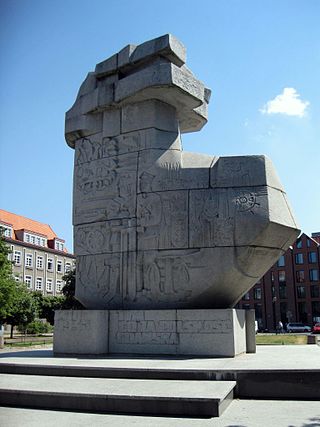
The Monument to Those for the Polishness of Gdańsk – a monument commemorating those who died for the Polishness of Gdańsk in the period from the Gdańsk massacre in 1308 to the end of World War II, unveiled on December 28, 1969 on the square at Podwale Staromiejskie Street. The monument in the shape of concrete blocks decorated with reliefs, symbolizing an axe stuck in the ground, was built according to the vision of Wawrzyniec Samp and Wiesław Pietroń.
Share
Disclaimer Please be aware of your surroundings and do not enter private property. We are not liable for any damages that occur during the tours.
GPX-Download For navigation apps and GPS devices you can download the tour as a GPX file.
